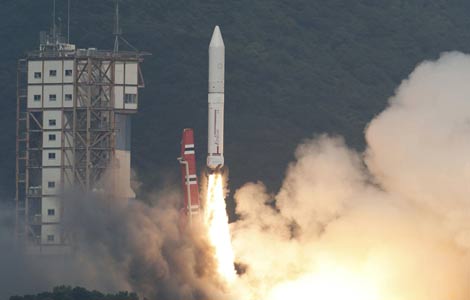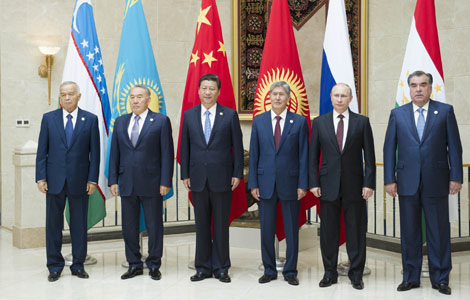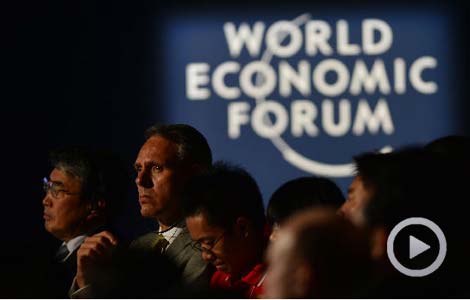New energy summit takes place in Chengdu
Updated: 2013-09-15 20:04
(chinadaily.com.cn)
|
||||||||
The West Renewable Energy Sources Alliance was established during the 2013 China (Chengdu) New Energy International Summit & Exhibition, which ends on Sunday, Sept 15.
The summit, which started on Sept 13 in Shuangliu county, Chengdu, Sichuan province, includes renewable energy enterprises, universities and research institutions that aim to build a communication platform to promote the development of the renewable energy industry.
With a focus on “adjustments to upgrade and develop the market,” more than 620 scholars and enterprise delegates attended the summit.
Officials from the Ministry of Science and Technology, National Energy Administration, and State Bureau of Nuclear Safety, as well as entrepreneurs from leading new energy companies, discussed the developments, prospects and trends of the domestic and overseas new energy sector.
In recent years, Shuangliu county has become one of the leading new energy industry hubs in China. It has been included on the list of China's Top 100 New Energy Industry Parks for three consecutive years. It also ranked first on the list of China's Top 100 New Energy Industry Counties.
Shuangliu county focuses on the development of solar energy, nuclear energy and wind energy. In addition, power and energy storage batteries, biomass energy and smart power grids are also important to the county.
So far, Shuangliu county has attracted 70 new energy projects with a total investment of 79.4 billion yuan ($12.98 billion). In 2011, new industry energy sales revenue reached 25.64 billion yuan. In 2012, the county’s photovoltaic industry sales revenue reached 14.79 billion yuan.
To date, Shuangliu county has signed agreements on 53 major projects with renowned new energy companies at home and abroad, with a total investment of 82.7 billion yuan ($13.2 billion). The annual sales revenue of the county's new energy industry has increased over 30 fold in the past four years. It is expected to reach 100 billion yuan ($16 billion) in 2015 and 200 billion yuan ($32 billion) in 2017.
- Aussie energy expert praises Chinese entrepreneur
- US investor aims at China's energy sector and SMEs
- Sino-French co-op in new energy
- Energy is priority, leaders agree
- Tour aims to boost energy cooperation
- Beijing's energy-saving output to reach $82b
- Riding the clean energy boom today
- China trains intl solar energy engineers
Most Viewed
Editor's Picks

|

|

|

|

|

|
Today's Top News
Japan switches off nuclear reactor
Summers withdraws from Fed chair contest
Chinese FM hails US-Russia deal
More foreigners get green cards
Scientists make land arable again
Fallen celebrity blogger says Net needs cleanup
Request for blood of female virgins misread
WB shares green path with China
US Weekly

|

|














